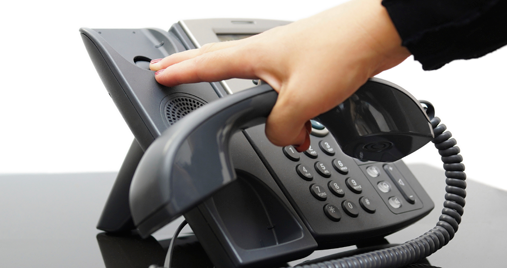
TELEMARKETING ABUSE AND FRAUD
TELEMARKETING ABUSE AND FRAUD TELEPHONE CONSUMER PROTECTION ACT, 47 U. S. C. §227 (“TCPA”)
The TCPA was enacted in 1991 due to the rising number of consumer complaints of invasive telemarketing practices including the use of autodialers (also known as “robo” dialers) and pre-recorded voice messages. The TCPA bans the use of certain telemarketing practices and creates a private right of action allowing a consumer to bring suit for up to $1,500 per violation. Violations may be counted on a per-call basis. For example, if a telemarketer dials a consumer 10 times in violation of the TCPA, it may owe the consumer up to $15,000. Contrary to popular belief, a consumer does not have to be registered on the National Do-Not-Call list for a violation to occur. The specific ways company frequently violate the TCPA are discussed below.
AUTODIALERS
The TCPA prohibits the use of an autodialer to contact a consumer’s cellular phone without that consumer’s consent. Autodialers are machines that allow a company to automatically dial thousands of consumers over a short period of time, either through the use of stored or predicted numbers. Indications that an autodialer was used include delays or clicking noises before a live operator is present to address the call. Autodialers are frequently used in conjunction with pre-recorded voice messages. If a company uses an autodialer to dial your cellular phone without your consent — which is shown by voluntarily giving a number to the company–than you may be entitled to $1,500 per call.
PRE-RECORDED VOICE MESSAGES
The use of pre-recorded voice messages to contact a consumer’s cellphone is also prohibited without that consumer’s consent. These violations are distinct of one another and be prosecuted independently. If a robotic or pre-recorded voice message is used, then the company has likely violated the TCPA unless the number was voluntarily provided to the company by the called person. Pre-recorded voice messages must also fully identify the company that makes the call. If the call is made for telemarketing purposes, an opt-out feature, such as the option to press 1 to be placed on an internal do-not-call list, must be clearly stated in the message. Violations are up to $1,500 per call.
DO-NOT-CALL LIST
The National Do-Not-Call List (“DNC”) provides additional protections to consumers. The violations discussed above are entirely separate and distinct from a DNC violation. DNC violations provide for up to $1,500 per call after the first violation. Some courts find that if the company has violated a separate provision of the TCPA (such as those described above), then the consumer is entitled to multiple violation fines per call. Thus, if an illegal pre-recorded was used to dial a consumer who is registered on the DNC list, then some courts will award the consumer up to $3,000.
TELEMARKETING
Telemarketing calls require the express written consent of the consumer. The violations described above apply even if the company is not calling for telemarketing purposes. However, when a company calls for telemarketing purposes, the company is subject to a number of additional requirements, including informing the consumer that the call is made for telemarketing purposes, and providing an optout feature that is easy to understand.
IMPORTANT STEPS TO TAKE AFTER RECEIVING AN UNSOLICITED CALL
If you suspect a company has dialed you in violation of the TCPA, we recommend that you immediately do the following:
(1) If you have a smartphone, take a “screen shot” of the call that shows the number that dialed you including the date and time if possible. Email the screenshot to yourself so that you have a permanent record of the call.
(2) Start keeping a log of the numbers that dial you and the corresponding date of the calls. This information is critical to calculate any damages you may be entitled to per call.
(3) Contact us for a free consultation.
-
Client Testimonials
See What Our Clients Have
To Say -
The Goel Firm Blog
Personal Injury & Insurance
News and Discussion. -
Free case evaluation.
Let Us Review
Your Case
The Goel Firm P.C.
9440 S. Santa Monica Boulevard Suite 301
Beverly Hills, California 90210
T: 424 281 4377
F: 888 800 4598
info@goelfirm.com









